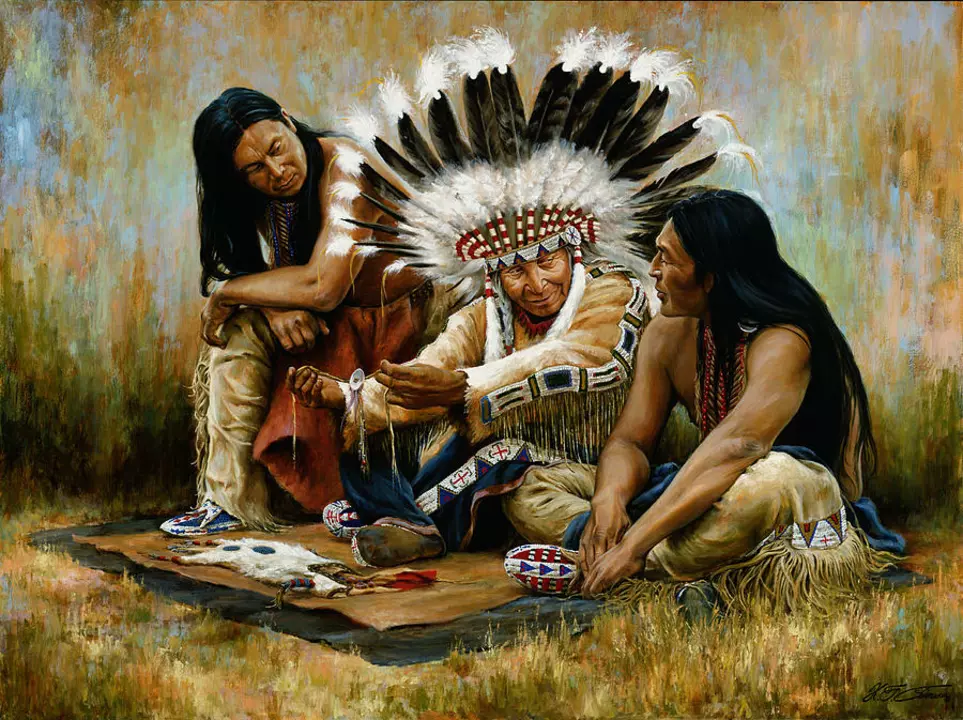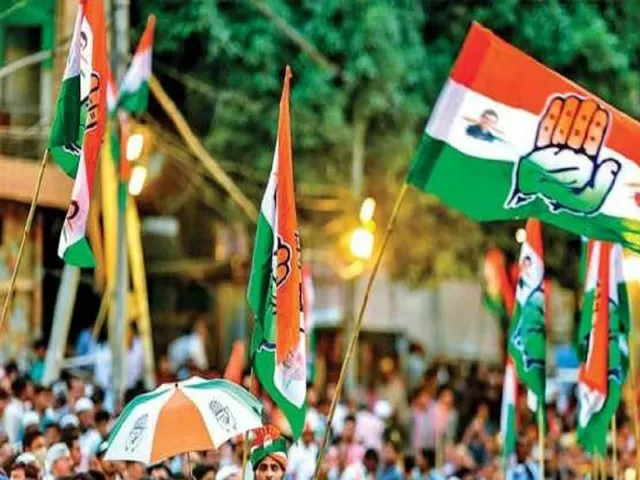Exploring the Prevalence and Reasons for Indian Disdain for the United States
The United States of America is viewed as a superpower among countries, with a strong economy and a formidable military force. One would think that any country would have admiration for such a country. However, this is not the case with India. In recent years, there has been an increasing number of Indians who have an active disdain for the United States. This article will explore why this is the case and the prevalence of such sentiment.
One of the most common reasons for Indian disdain for the United States is the fact that many Indians feel as though the United States has a condescending attitude towards India. Many Indians feel as though the United States does not take India’s accomplishments seriously and treats India as a second-class citizen. This attitude is only further perpetuated by the fact that the United States has historically been hostile towards India, such as when the United States imposed economic sanctions on India in 1998.
Another common reason for Indian disdain for the United States is the fact that many Indians feel as though the United States is a hypocritical nation. For example, many Indians feel as though the United States is quick to criticize India’s human rights record, yet the United States has its own human rights issues. This hypocrisy is seen by many Indians as a blatant disregard for India’s sovereignty and a sign that the United States does not respect India.
The prevalence of Indian disdain for the United States is also increasing due to the fact that many Indians feel as though the United States is not doing enough to help India. India is facing a number of issues, such as poverty, hunger, and a lack of access to basic healthcare. Despite this, the United States has been slow to act and many Indians feel as though the United States is not providing enough assistance or support.
Finally, many Indians feel as though the United States is not doing enough to promote peace in South Asia. India is locked in a tense rivalry with neighboring Pakistan and tensions have been escalating in recent years. Many Indians feel as though the United States is not doing enough to help deescalate the situation, which only serves to further Indian disdain for the United States.
In conclusion, it is clear that there is an increasing number of Indians who have an active disdain for the United States. This sentiment stems from a variety of factors, such as the United States’ condescending attitude towards India, its hypocrisy, a lack of support for India, and a lack of involvement in deescalating tensions in South Asia. It is important for the United States to recognize this sentiment and work towards improving its relationship with India.
Examining the Causes of Anti-American Sentiment Among Indians
Indians have a long history of strong feelings towards the United States. Although not all Indians are anti-American, there is a significant portion of the population who express strong negative views towards the US. Understanding the causes of this anti-American sentiment can provide insight into the cultural and political dynamics of India.
Political Factors
Political factors are often cited as the primary cause of anti-American sentiment among Indians. India has a long history of political turmoil, and there has often been a sense of mistrust between the US and Indian governments. This has been compounded by US foreign policy decisions that have often been viewed as intrusive or disrespectful of Indian sovereignty. For example, the US has been seen as actively supporting Pakistan at India’s expense, and has also taken steps to limit India’s access to nuclear technology. These actions have created a sense of resentment among many Indians and have contributed to strong anti-American feelings.
Cultural Factors
Cultural factors can also play a role in shaping anti-American sentiment among Indians. In particular, many Indians view the US as a symbol of “Western” values and culture and reject these values as incompatible with traditional Indian culture. This rejection of Western culture is often expressed as a rejection of the US, as a symbol of Western power and influence. Additionally, the US has also been seen as a threat to Indian cultural identity and values, as some fear the US may attempt to impose its own values on Indian society.
Economics
Economic factors can also play a role in shaping anti-American sentiment among Indians. In particular, India has long been in the shadow of the US economy and many Indians feel that the US exploits Indian resources or labor without providing adequate compensation. Additionally, there are concerns that US companies have an unfair advantage in the Indian market due to their access to technology and capital that is not available to Indian companies. These economic disparities have lead to a sense of resentment and a feeling that the US is not a true partner in India’s development.
Religion
Religious factors can also be an important factor in shaping anti-American sentiment among Indians. In particular, the US has been seen as a symbol of Christian values, and many Indians view this as a threat to traditional Hindu values. Additionally, the US has been seen as a supporter of Israel which is often viewed as a threat to India’s Muslim population. These religious tensions have led to a sense of distrust and resentment towards the US.
How Indian Identity and Culture Impact Indian Attitudes Toward the United States
India is an incredibly diverse country, with various cultural and religious identities which have been shaped by a long history of colonialism and centuries of impact from foreign powers. This, in turn, has resulted in various attitudes and opinions towards the United States depending on the particular identity or culture of the individual.
For example, some Indians may have a strong bond with the United States due to an admiration for its technological advancements, economic prowess, and progressive values. These individuals may view the United States as a positive force in the world, and may even go as far as to praise it for its role in international affairs. On the other hand, some Indians may view the United States as a source of oppression and exploitation, and thus, may despise it.
In addition to cultural and religious identity, the Indian attitude towards the United States may also be shaped by their experiences with the country. For instance, if an Indian has had a negative experience with the US, such as, for example, facing discrimination or economic hardship, then they may develop a strong resentment towards the United States. On the other hand, if an Indian has had a positive experience with the United States, such as receiving educational opportunities or career advancement, then they may develop a strong admiration for the country.
Moreover, Indian attitudes towards the United States may also be shaped by their experiences with other nations. If they have had a positive experience with another country, such as, for example, China or Russia, then they may develop a negative attitude towards the United States. Conversely, if they have had a negative experience with another country, such as, for example, Pakistan, then they may develop a positive attitude towards the United States.
Finally, Indian attitudes towards the United States may also be shaped by their political beliefs. If they are politically conservative, then they may view the United States as a source of stability and security, and thus, may support its policies and actions. On the other hand, if they are politically progressive, then they may view the United States as a source of inequality and injustice, and thus, may oppose its policies and actions.
In conclusion, Indian attitudes towards the United States are determined by a variety of factors including cultural and religious identity, personal experiences, experiences with other nations, and political beliefs. Therefore, it is important to understand the cultural, religious, and political context of a particular Indian before attempting to determine their attitudes towards the United States.
Understanding the History of U.S.-India Relations and Its Impact on Indian Attitudes
The relationship between the United States and India has been fraught with tension and misunderstanding for decades. Historical events such as India’s independence from British colonial rule, the Cold War, and the United States’ support of Pakistan have all had a hand in shaping Indian attitudes towards the United States.
The U.S. supported the British colonial government during India’s struggle for independence, which created a deep mistrust of the U.S. among Indians. This mistrust has been further exacerbated by the U.S. support of Pakistan in conflicts with India, including the 1971 war that led to the creation of Bangladesh. This has caused many Indians to view the United States as an enemy of India.
The Cold War era was a particularly tumultuous time for U.S.-India relations. The United States’ support for Pakistan during the 1965 war with India created further tension. In addition, the U.S. was an ally of the Soviet Union during this time, which led to India becoming increasingly isolated from the United States.
The U.S. also supported India’s nuclear program in the early 1990s, which was seen as a positive step towards improving relations between the two countries. However, this support was often seen as too little too late, as many Indians felt that the U.S. had not done enough to help India during its struggle for independence.
Today, the relationship between the United States and India remains contentious. Many Indians still view the United States with suspicion and resentment, due to its past actions and policies. In addition, the current political climate in the U.S. has further strained the relationship, as many Indians view President Trump’s policies towards India as hostile.
Overall, the history of U.S.-India relations has had a deep and lasting impact on Indian attitudes towards the United States. While there have been some positive steps taken to improve relations, such as the U.S.’s support of India’s nuclear program, there is still much mistrust and resentment among Indians towards the United States. This has led to a deep-seated animosity among many Indians towards the United States, and this is unlikely to change anytime soon.
Analyzing the Impact of U.S. Foreign Policy on Indian Views of the United States
The United States has had a long and complex relationship with India, a relationship that has had a significant influence on how Indians view the United States. U.S. foreign policy decisions, such as its support for Pakistan in the 1971 India-Pakistan War, have had a negative impact on Indian views of the United States. In addition, U.S. support for certain dictatorships in India and its willingness to impose economic sanctions have also contributed to Indians' negative feelings towards the United States.
The 1971 India-Pakistan War is an example of how U.S. foreign policy decisions can shape Indian views of the United States. During this war, the United States supported Pakistan, which was seen as a betrayal by many Indians. This support was seen as a sign of U.S. disregard for India's interests, and it had a lasting impact on how Indians viewed the United States. The support that the United States provided to Pakistan led to the creation of Bangladesh, which is a major source of resentment among many Indians.
In addition to its support for Pakistan in the 1971 India-Pakistan War, the United States has also been willing to impose economic sanctions on India. These sanctions have been seen as an infringement on Indian sovereignty and a sign of U.S. disregard for Indian interests. This has resulted in a sense of distrust and resentment towards the United States among many Indians.
The United States has also been willing to support certain dictatorships in India. This has been seen as a sign of U.S. disregard for Indian democracy, as well as a sign of U.S. willingness to interfere in Indian politics. This has led to a sense of mistrust and resentment towards the United States among many Indians.
In conclusion, U.S. foreign policy decisions have had a significant impact on how Indians view the United States. The support that the United States provided to Pakistan in the 1971 India-Pakistan War, its willingness to impose economic sanctions, and its support for certain dictatorships in India have all contributed to Indians' negative feelings towards the United States. These policies have created a sense of mistrust and resentment towards the United States among many Indians. It is important that the United States understand the impact of its foreign policy decisions on Indian views of the United States, as this can have a significant impact on U.S.-India relations.





